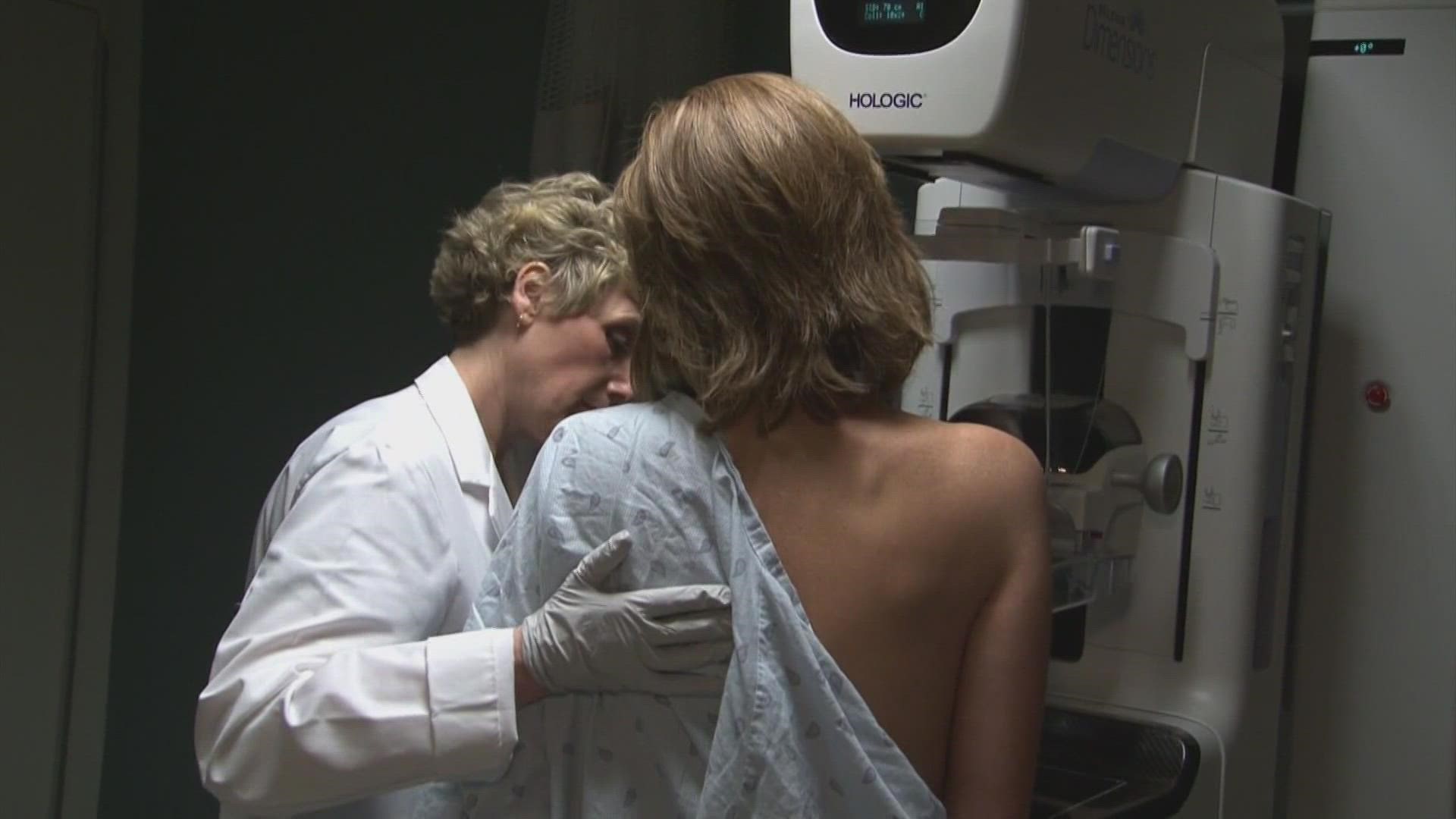NEW ORLEANS — Even though COVID-19 sparked a new focus on health, cancer screenings saw a dramatic decrease during the pandemic.
The National Cancer Institute estimated 9.4 million screenings that normally would have been performed on patients in 2020, did not happen due to the pandemic.
The team at Ochsner saw a that decline firsthand in their screenings. Doctors there, like Melanie Sheen, a breast cancer specialist, have been working throughout the last two years to push messaging to women and men about the importance of prioritizing their breast cancer screenings.
"From March to May of 2020, we saw a dramatic decrease across the nation in mammograms and in health in cancer screening in general," Dr. Sheen said. "Now, we're back to pretty much pre pandemic rates of people coming in and getting your screening mammograms getting their exams,"
While screenings at Ochsner have rebounded close to pre-pandemic levels, Sheen has concern for those who have not made their way back into their doctor's office yet.
Dr. Sheen said, "If you had an abnormal mammogram in 2020, and it just didn't get followed up because of the pandemic, something really bad could be happening. So, if you missed your mammogram, in 2020, or 2021, it's really important to come back as soon as possible."
While treatments for breast cancer have improved over the years, early detection is still vital when it comes to successfully treating the disease. Dr. Sheen said family history is also a major factor.
"One out of every nine cases of breast cancer is going to be linked to a known genetic mutation, but we don't know all of the genetic links to breast cancer yet. We're constantly learning more, and we know that sometimes there's not a genetic link," said Dr. Sheen. "Just because there's not a genetic link, doesn't mean that that family history is not important that family history is very important."
Other risk associated with breast cancer include increasing age, history of abnormal biopsy, benign breast disease, lifestyle choices, never having children, or hormone replacement therapy just to name a few.
Self-breast exams can also be a useful too when it comes to detecting abnormalities that you can see. Skin irritation or dimpling, nipple retraction or discharge and swelling of all or part of the breast are all calls for concern if you notice any of these symptoms on your breast. However, it is important to note that, usually there are no signs or symptoms when the tumor is small. That's why annual mammograms are so important, because it catches the things you can't see.
Sheen said, "We know that screening mammograms helped save lives. That's because those screening mammograms detect the cancer before you can feel it, before it becomes stage two or stage three or even metastatic, which is what we call stage four. So early screening saves lives."
Sheen and her colleagues at work year-round to make sure women and men understand the importance of getting those annual mammograms.
"We are conducting clinical trials both looking for medications to treat breast cancer that are better than what we have looking at screening that may be better than what we're normally doing. And we also have trials looking at are some treatments too much or some treatments too little. So, trying to personalize those treatments for patients," said Dr. Sheen
For more information about how you can schedule your cancer screening, click here.

